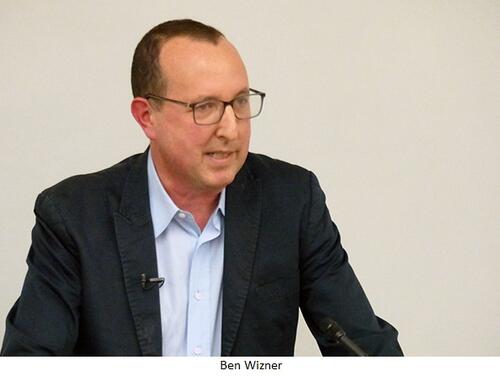The Case Against National Security Law

Ben Wizner can summarize the lessons of a year-long class in national security law in a few short sentences.
“The time bomb is always ticking,” he said. “We neither confirm nor deny what you see in plain sight. Or: Heads we win, tails you lose.”
Wizner, the director of the American Civil Liberties Union’s Speech, Privacy, and Technology Project, elaborated on these themes in two lectures at the Institution for Social and Policy Studies (ISPS) late last month, part of the Program on Ethics, Politics, and Economics’ (EP&E) Castle Lecture Series. The series has been endowed by John K. Castle to honor his ancestor and one of the university’s original founders, the Rev. James Pierpont. University Press publishes each set of lectures as a book.
“The Castle lectures aim to promote awareness of the ethical challenges and complexities of our society and foster a robust dialogue of the moral foundations of society and government,” said Ana De La O, EP&E director and ISPS faculty fellow. “We are very grateful to Ben for accepting the invitation to deliver this Yale lecture and for his willingness to discuss with our community such a relevant and complex topic as the interconnection of national security and democratic accountability.”
Speaking to audiences quick with their questions, Wizner discussed his experiences over two decades with the ACLU, litigating cases involving the treatment of U.S. government detainees in Guantanamo Bay, Cuba, warrantless surveillance programs, torture, and targeted killing. He describes a legal regime in which courts have routinely deferred to government officials’ assertions of national security interests and declined to reach decisions on many matters, deeming them non appropriate for judicial consideration.
Can the government carry out extrajudicial executions without notifying a targeted U.S. citizen of any justification? Can individuals taken by U.S. government officials and abused in foreign countries seek any remedy under U.S. law? Can the U.S. government vacuum up all international communications —including web browsing, search histories, and emails to and from U.S. citizens — and search it without any court approval?
We don’t know, Wizner said. Because courts have accepted government arguments that to hear such cases in court would reveal state secrets and harm national security.
“These outcomes deprive litigants of remedies,” he said. “But of greater significance, by failing to say what the law is, they deprive the nation of a definitive adjudication, allow abuses to continue unchecked, and leave the door open for future misconduct.”

Even as the government has lost cases concerning the treatment of individuals it has labeled enemy combatants in Guantanamo Bay, two decades later the U.S. Supreme Court has yet to rule on whether indefinite detention there without due process is lawful.
“All of this litigation without any substantive outcomes generates a kind of fog of law that conceals what I believe to be the real organizing principal of national security law: impunity for senior officials,” Wizner said. “This regime is robust and malleable and has proven adept across decades at identifying new hosts. It will not be dislodged anytime soon.”
Wizner argued that state secrets can be legitimate, but citizens and courts should not treat the government’s assertions as absolute and limitless, particularly considering documented cases of government deception. He said that public opinion is vital to exposing and curtailing government overreach, even if lawsuits seeking documents and accountability regularly fail.
Since 2013, Wizner has served as the principal legal advisor to Edward Snowden, a former NSA subcontractor who leaked highly classified agency documents revealing its warrantless wiretapping program. He said breaking the law, as Snowden did, is the only way to create transparency because the government — including the courts and Congress — are not willing to acknowledge secrets even when they have been leaked and reported in the media. In secrecy disputes, he said, the government always gets the last laugh.
“But the game the government plays in these cases is corrosive and damaging,” Wizner said. “By deploying selective leaks to the press and secrecy claims to the courts, the government can simultaneously manipulate public debate and avoid accountability and oversight.”